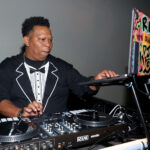
It is no secret that STEM subjects are traditionally dominated by boys – but now female students are reclaiming their space in the scientific fields.
Seventeen-year-old champion hurdler Scarlett Pye is not letting anything stand in her way of engineering success.
Pye was studying at Randwick Girls’ High, Australia, when she realised her gender was going to be an obstacle in achieving her goal of being an engineer.
But, determined to make her dreams a reality, Pye made the leap to join a class of 20 boys studying engineering at Randwick Boys’ High when her school did not offer the subject.
“I love building and designing things and I have some cousins who are engineers, so it is something I always thought I would love to do,” Pye told The Sydney Morning Herald.
Although she had to attend lessons at Randwick Boys’ High, Pye was top of her class and she is confident engineering will be her best subject when she receives her Higher School Certificate results.
We are very happy that 'The girl who topped the Engineering class in a boys' school' is a Randwick Girl! She has just been offered a full scholarship for the duration of her university study with a guaranteed job by ARUP.
— Randwick Girls' High (@RandwickGirls) December 13, 2017
This ambitious attitude symbolises the turning of the tides for women being heard as leaders in the STEM field.
Twenty-two-year-old NASA engineer Tiera Fletcher said: “I see that women are beginning to be recognised for their capabilities in various fields of research after so long.
“For young women who are considering a career as a researcher in the field of STEM, I encourage you to challenge the gender bias by focusing on understanding your subject matter and excelling in everything you do. Do not depend on others to define your abilities. Never stop learning. Never give up on yourself.”
Computer Science graduate Danielle Platt told Study International: “The idea that women should do creative subjects and men should do technical subjects is archaic and boring. People should have the freedom to apply their skills without judgment and stereotypes from others.
“It’s important that science is not a career path ruled out by sex or gender, because you never know whether or not you might have the logical skills or the creative flair that it requires.”
“getting women into science and technology ultimately promises to benefit society as a whole.” A global gender imbalance in #STEM disciplines.https://t.co/JPEmyJqy5u pic.twitter.com/jMRSo5DvUA
— ESSA (@ESSA_Africa) December 13, 2017
Now graduated with a BSc in Computer Science, Platt has learnt that her ability to deal with logical issues is not prescribed by her gender even though these stereotypes exist.
“I received many comments while studying, and most of them boiled down to ‘Why do you want to study this? Isn’t it full of men?’ or ‘That seems quite technical for a girl like you’,” Platt explained.
“Yes, it can be technical, but it’s also interesting, and the feeling of fixing a bug can feel as great as taking off your shoes after a long night out.”
Liked this? Then you’ll love…
Why schools need to encourage girls to code
Young girls aren’t pursuing STEM subjects: Why? And how can we help?







